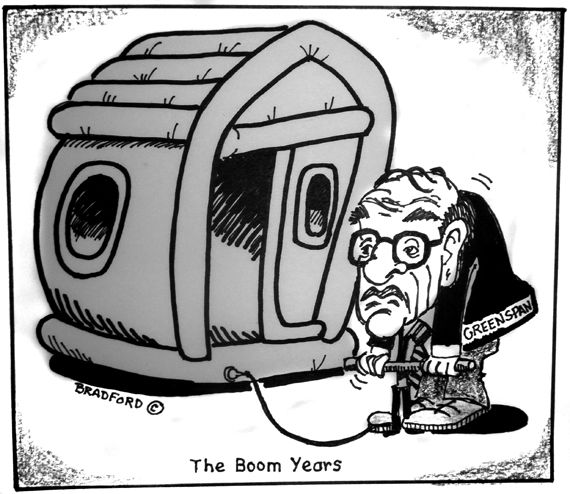 (Bloomberg) -- Federal Reserve Chairman Ben S. Bernanke said the central bank’s interest rate policies last decade weren’t responsible for the housing price bubble that led to the recession.
(Bloomberg) -- Federal Reserve Chairman Ben S. Bernanke said the central bank’s interest rate policies last decade weren’t responsible for the housing price bubble that led to the recession.
“Some have argued that the Fed’s low interest rate monetary policy in the early 2000s contributed to the housing bubble, which in turn was a trigger of the crisis,” Bernanke said today in the second of four lectures on the history of the Fed that he plans to deliver at George Washington University.
“Most evidence suggests otherwise,” Bernanke said, focusing on history and not on current monetary policy or the economic outlook. In defense of the Fed, Bernanke cited house price booms in foreign countries and said the size of the asset bubble was too large to be explained by changes in mortgage rates. Also, home prices began to rise in the late 1990s, before the Fed lowered rates, he said.
Bernanke, a former economics professor at Princeton University, is returning to the classroom this week and next to explain the central bank’s actions during the financial crisis and the longest recession since the Great Depression. His lesson today is titled “The Federal Reserve after World War II.”
Following a recession in 2001, the central bank lowered interest rates to 1 percent in 2003 and 2004 even as home price gains accelerated. Bernanke’s defense of the Fed actions drew on a January 2010 speech he gave in Atlanta, he said.
but mistakes were made.
Though its interest rate policies were appropriate, Bernanke said, the Fed “made mistakes in supervision and regulation.”
“In our supervision of bank and bank-holding companies we didn’t push hard enough on this issue of measuring your risks,”Bernanke said. “Another area where the Fed performed poorly was I think in consumer protection.”
Bernanke, 58, also said government policies to increase homeownership were not principally to blame for the housing bubble.
“I think to put it all on the government is probably wrong,” Bernanke said in response to student questions. “Most of the worst loans were made by private sector lenders and then sold through private-sector securitizations. They didn’t touch Fannie or Freddie,” he said, referring to government-sponsored entities Fannie Mae and Freddie Mac.
While his lecture focused on historical topics, Bernanke noted that today’s policy benefits from the low-inflation brought about as the result of former Fed Chairman Paul Volcker’s battle against price increases.



